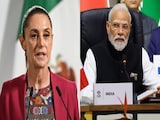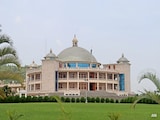As the Indian summer unfolds, the streets come alive with a vibrant array of sherbats and cooling drinks. But when it comes to Ramadan's iftar, a timeless tradition reigns supreme across South Asia: the refreshing indulgence of Rooh Afza. This iconic beverage, with its vibrant red hue and captivating rose-infused flavour, transcends borders, bringing families and communities together to celebrate the holy month.
Rooh Afza's story stretches back over a century, formulated in old Delhi by Hakim Hafiz Abdul Majeed, a Unani medical practitioner in Delhi. Driven by the desire to create a cooling concoction that would combat the scorching summer heat, he crafted a unique blend of fruits, herbs, and floral extracts, including the unmistakable notes of rosewater and pandan. This delightful elixir, aptly named 'Rooh Afza' meaning 'soul refresher' quickly captured the hearts (and taste buds) of Indians.
Rooh Afza, initially crafted to alleviate Delhi's oppressive heat, swiftly gained immense popularity across South Asia, overseas, and in Gulf nations as well.
Photo Credit: Instagram.com/hamdardroohafza/
According to the official website of the Hamdard laboratories, in 1906, Hakeem Hafiz Abdul Majeed opened a Unani clinic ("Hamdard," meaning "sympathy for all") in Old Delhi. This is where he created "Sharbat Rooh Afza" in 1907, a refreshing drink translating to "soul rejuvenator" in Urdu. Despite the India-Pakistan partition, Rooh Afza has remained a beloved summer beverage for over a century, a true South Asian staple.
According to National Public Radio, after Majeed died, his wife and two sons continued the business. When the Indian subcontinent was partitioned in 1947, one of his sons stayed in Delhi while the other moved to Pakistan. They set up factories in both countries as well as one in East Pakistan, which became Bangladesh in 1971, under two firms.
Both businesses are independently run today, but their products are "almost the same," Hamid Ahmed, Majeed's great-grandson and currently the CEO of Hamdard India's food division, told NPR, whose annual turnover is nearly $70 million. In 2020, the company reported that it earned more than $37 million from Rooh Afza sales alone.















